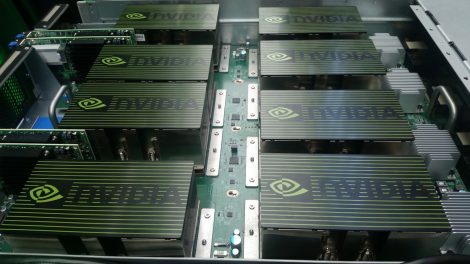Machine Learning Gains Momentum in MSP Space
Broad adoption of powerful cloud computing has unleashed innovation in artificial intelligence technologies, and 2017 is poised to be the year that AI and machine learning applications make their way into the hands of the general public.
For those in IT and – more specifically – the managed services space, tools driven by AI are increasingly popping up in everything from customer service and security, to CRM and remote monitoring and management.
Machine learning can have a particular impact for IT tech services firms, where increased efficiency can translate directly into more revenue falling to the bottom line.
“There is an absolute revolution occurring in artificial intelligence,” John Ball, general manager of Salesforce Einstein, told Bloomberg when that AI product launched in September.
Machine learning, which represents one type of artificial intelligence, is joined at the hip with big data.
The technology can access voluminous data from applications like the Salesforce CRM, discern patterns and apply algorithms to automatically change the operation of applications and improve business outcomes.
Einstein, for example, can help salespeople reach appropriate prospects more effectively or guide visitors in a strategically customized journey through a company’s website.
Salesforce users don’t need to do anything to leverage the machine learning capabilities. They simply use the CRM and the features work automatically in the background.
“This is democratizing AI so that every company can benefit from these techniques,” Ball said.
Automating customer service interactions with support bots has been among the more common early applications of AI technology.
Microsoft Bot Framework is designed to work with email, texts, Facebook Instant Messenger, Skype and other platforms to provide automated service interactions with customers.
SupportBots.io, a service developed specifically for MSPs and IT services providers, can be linked to a company’s PSA to enable automated creation or modification of support tickets, scheduling of appointments, or arranging of a call back from a live service representative.
But even those applications are merely scratching the surface of AI’s potential in IT.
In November, Symantec launched Endpoint Protection 14, a layered suite of cyber-defense tools that relies on machine learning to detect potential threats and execute a response based on analysis of more than 4 trillion threat types previously identified through log data.
“Symantec Endpoint Protection 14 is the industry’s first solution to fuse essential endpoint technologies with advanced machine learning and memory exploit mitigation in a single agent, delivering a multi-layered solution able to stop advanced threats and respond at the endpoint regardless of how the attack is launched,” the company said in a statement announcing the launch.
Other potential applications in the IT services space are just in their infancy.
MSP toolset maker Atera announced this week that it was doubling the size of its research and development budget, seeking to innovate new capabilities for its all-in-one RMM, PSA and remote access platform.
Among other applications, Atera CEO Gil Pekelman envisions incorporating machine learning to help MSPs with tasks like how to program an RMM to monitor an optimum assortment of metrics.
“You have hundreds of things to choose from,” he said. “How do you know what are the right things to monitor?”
In the past, such decisions were based on the MSPs experience, intuition and maybe suggestions from peers, Pekelman said.
“Here, machine learning is able to (evaluate) the whole list and start learning,” he said. “It’s deciding all the time what is the optimal combination of data points to monitor…while legacy systems require the human to make a best guess.”
But as more and more such decisions come to be made by machines, new questions will arise about the composition and duties of MSP employees,” Pekelman said.
“What becomes the place of the human in this environment? It’s innovation,” he said. “The MSP is going to be taking care of strategy and architecture,” Pekelman continued. “That, the machine can’t do.”

